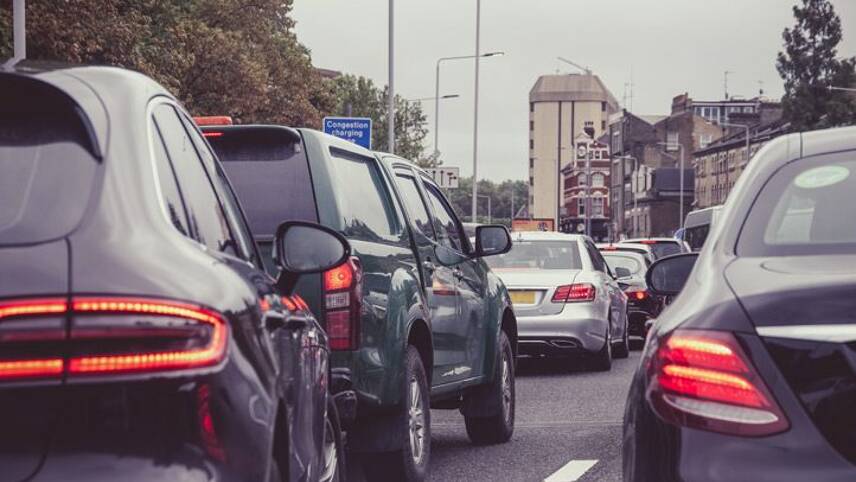Register for free and continue reading
Join our growing army of changemakers and get unlimited access to our premium content

Polluting vehicles account for around half of London's harmful NOx air emissions
The Government is seeking views on a revised Air Quality Strategy which outlines the roles that councils in England would play in delivering improvements to air quality. A key aspect of the consultation is that no new powers would be granted to these local authorities, but rather they would utilise “existing powers” to achieve progress.
Environment Minister Rebecca Pow said: “By taking action in communities across the country, local authorities have a pivotal role to play in improving air quality, and they should listen to local residents and local businesses to find solutions that work best for their local area.
“Building on the great strides made in tackling air pollution at a national level since 2010, this strategy will help councils to go further and faster to improve air quality for the benefit of their residents. I encourage all local authorities to respond so together, we can deliver cleaner air – now and for the future.”
The Government’s headline target on air pollution is to halve the limit on fine particles (PM2.5) in England from an annual average of 20 to 10 micrograms per cubic metre of air. The World Health Organisation updated its guidance on PM2.5 in 2021 stating that nations should target 5 micrograms per cubic metre of air. Green groups have constantly called for the UK to align with this new metric.
The passing of the Environment Act means that any areas exceeding their air pollution limits will need to declare an ‘Air Quality Management Area’ within 12 months and update their Air Quality Action Plan to bring pollution down within 18 months after that declaration. There are also new requirements on the level of detail in timelines provided in these plans.
The consultation runs for just 10 days, however, following which the Government will publish a final strategy – a move that has angered some green groups.
Responding to the strategy, UK100’s interim chief executive, Jason Torrance, said: “After waiting so long for the strategy, it is incredible that the Government is giving local authorities, the public and other stakeholders just ten days to respond. Action on one of the greatest environmental and public health threats of our time is urgent, but it needs to be taken with public consent and in collaboration with local leaders to be credible and effective.”
“It’s unacceptable that local leaders have been left gasping for breath as they try to respond to a strategy conferring huge new responsibilities on local authorities during a pre-election period that restricts how they can respond. The first thing Ministers must do is extend the consultation period — and do so beyond the local elections.”
Torrance went on to say that the proposed strategy is “flimsy” but did include “positive recognition of the importance of ensuring Clean Air and Net Zero action is aligned at the local level”.
UK100 also notes that the air quality grant scheme mentioned in the strategy has only delivered £53m of funding to local authorities in 13 years, but that local authorities have spent between £27m million and £63m just on bidding for competitive funding pots like the air quality grant.
Last year, Defra confirmed it was mandating that England’s highways authority works more closely with local councils to help reduce air pollution.
Defra is making National Highways the first designated ‘Relevant Public Authority’ for air pollution under the act. This means that the agency will now have a statutory requirement to work with local councils throughout the development and implementation of plans for reducing air pollution on roads.
By Defra’s own figures, domestic road transport generates 12% of England’s particulate matter (PM) air pollution, and 35% of its nitrogen oxide emissions, hence the selection of National Highways as the first body to be subject to this new requirement.


You are quite right, Jason, but HMG are politicians, not in the real world.
Ten days is absolutely ridiculous. I would doubt that any of them would have the faintest notion of the reality of the microgram.
How much attention is paid to the reality that there is no such thing as “our air”. What was foreign air a few hours ago, is now “ours”.
Perhaps most of the thinking concerns urban concentration atmosphere? But that should be made clear.